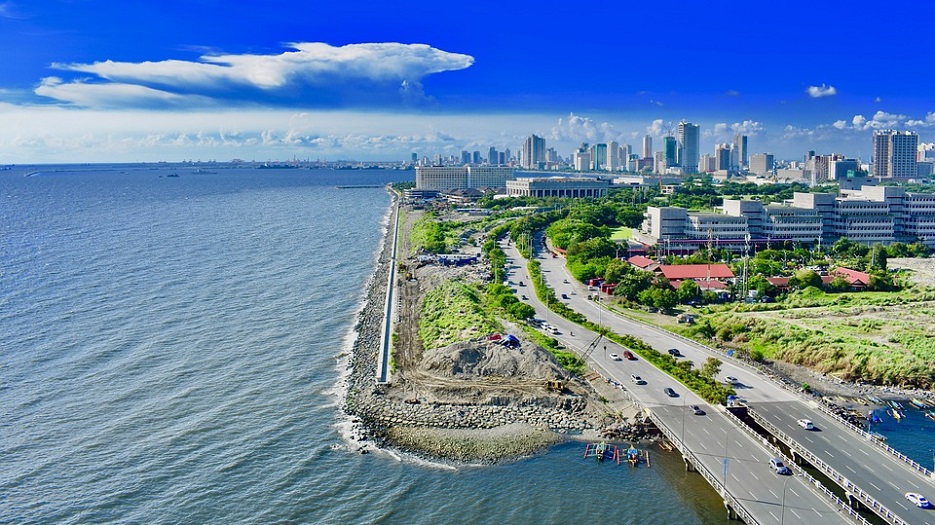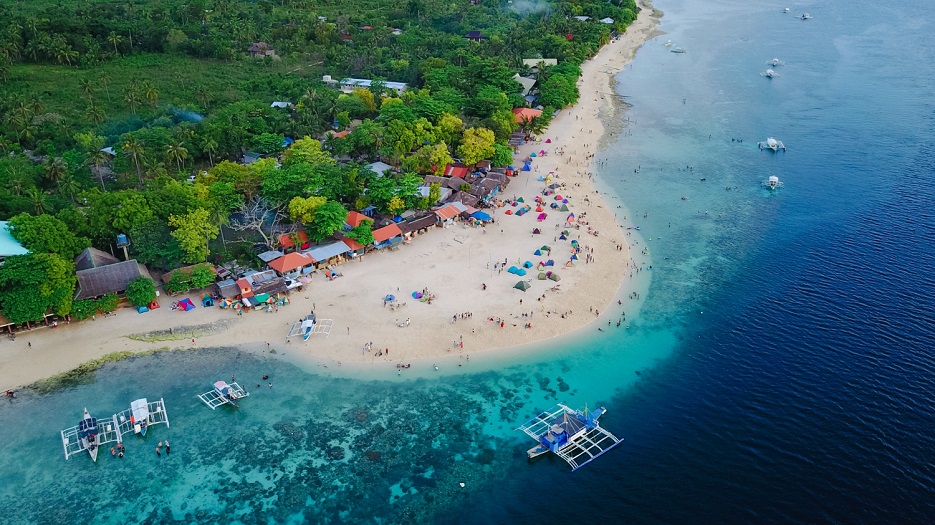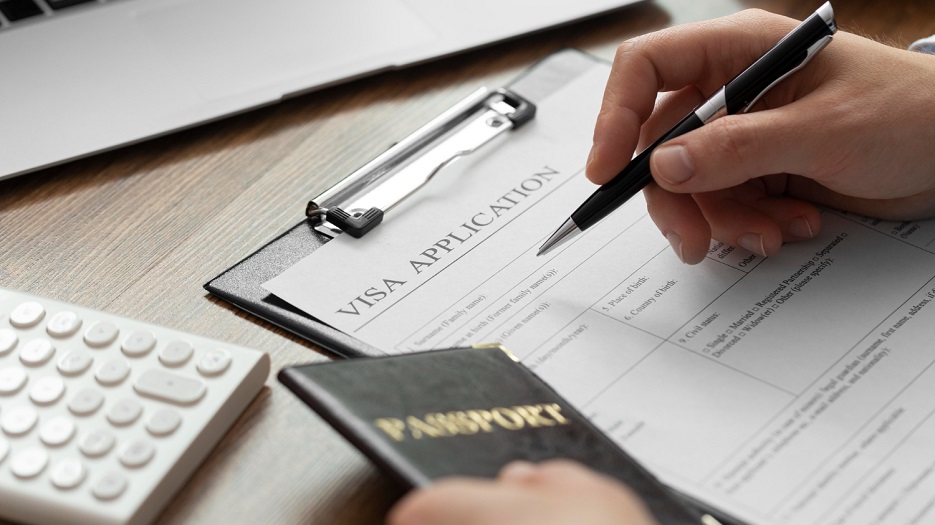The third-most-populated country in the world with 119 million people, the Philippines has one of the fastest-growing economies in the world and a competitive export edge with plentiful natural resources like coconut oil and nickel ore.
Much like the largely untouched mineral deposits in the country, the Asian archipelago country is developing business potential that remains untapped by foreign entrepreneurs and investors. In this business guide to the Philippines, we will introduce the main advantages of doing business in the Philippines and explain how to apply for the business visa permit called the 9G visa.
Why do business in the Philippines?

Rapidly growing economy
As a newly industrialised country (this is defined as an economy transitioning from primarily agriculture toward manufacturing and services), the Philippines is one of the fastest-growing economies in the world.
The Philippine economy has grown at an average annual rate of 6-7% since 2010, with expansion activity particularly centred in Manila. Even in the throes of the global pandemic, the Asian economy recorded a 7.6% economic growth in 20221. This was largely driven by the growth in spending by Filipino households, as the labour market improved quickly post-Covid.
Tax incentives
Foreign companies doing certain business activities can enjoy tax incentives provided by two main regulating bodies:
- PEZA: Foreign companies doing export manufacturing or other export-oriented activities can register with the Philippine Economic Zone Authority (PEZA) to enjoy multiple tax incentives, including income tax holiday up to eight years, tax exemptions and tax credits.
- BOI: Overseas enterprises doing activities that are deemed to be investment priorities by the BOI, at least 70% export-related, or doing business in an area listed as a ‘less-developed area’ can register with the Board of Investments (BOI) to enjoy four to eight year income tax holidays as well as up to six years’ exemption from local business taxes for certain industries.
- Located in Special Economic Zones (SEZs): Foreign companies running their operations in designated SEZs defined by PEZA can also benefit from tax exemptions and tax holidays.
Low labour costs
No matter whether business owners are in the Philippines or operate their business internationally, the low labour costs are another advantage of doing business in the archipelagic country. This is especially true in province areas, as rent is higher in business districts like Makati Central Business District or Cebu Business Park.
Coupled with the young, English-speaking workforce (ranking second-highest in Southeast and East Asia for 2022 for English proficiency after Singapore2), overseas business owners have a large repository of cost-effective resources to draw from to run their business.
The fact that over 90% of the Filipino population speaks English3, and its status as an official language, also means that business interactions and getting around won’t require as much adjustment for an expat.

Beautiful natural environment
Finally, something that shouldn’t be undercounted when you start a business venture in a new place is the quality of life. The Philippines is an archipelago made up of more than 7,600 islands, and as part of the Coral Triangle ecoregion, it has incredibly biodiverse sea life, beaches and diving.
Besides, the rich cultural background and some of the friendliest locals in the world (as voted by Condé Nast Traveller in 20224) also make the country attractive for entrepreneurs looking to settle in Asia.
Read More
Introduction to Philippines business visa
There are a couple of ways for entrepreneurs to enter the Philippines for an extended period of time. One of these is the Special Investor’s Resident Visa (SIRV), which allows an individual to stay in the archipelagic nation permanently as long as they invest a minimum of US$75,000 in approved economic activities in the Philippines.
Another low-capital avenue is through getting the 9(g) or 9G visa, which non-local entrepreneurs can use to either work or start a business in the Philippines.
What is a 9G Visa in the Philippines?
The 9G visa is widely known as the Pre-Arranged Employment visa. It is the most common type of working visa issued in the Philippines. The 9G visa enable foreign nationals to work for a registered or licensed company, as well as to conduct business transactions under the Philippine laws. The 9G visa also entitles the holder multiple entries and exits rights into the country. Typically, the duration of the 9G visa is largely subject to approval by the Bureau of Immigration.

How to obtain the 9G visa?
As long as you are seeking lawful employment in the Philippines, you are eligible to apply for the 9G business visa.
If outside the Philippines, you should apply in the Philippines embassy or consulate in your country of residence (that is, not in a country you’re visiting or temporarily living in). If you’re a foreigner already residing in the Philippines on a temporary work visa or visitor visa, you can apply for a 9G visa at one of the approved Bureau of Immigration offices in-country.
You must be able to produce proof that you have a locally-based employer or business partner who has at least 60% capital stock in the company. This is because expats can hold a maximum of 40% equity in a company in the Philippines.
Therefore, you must have Filipino citizens whom you know and trust as business partners physically in the country.
A Philippines-based company (that is, the one in which your Filipino business partners hold a 60% share) must file a petition for you to receive the 9G business visa. If you plan to work in the country for fewer than six months, you must then apply for the Special Work Permit; if you plan to work for six or more months, apply for the Alien Employment Permit.

What documents are required to apply for 9G visa?
Once you’ve gotten a local company to petition for you to receive the 9G visa, you should prepare the following application documents:
- The checklist of required documents;
- Completed application form;
- If you have children, the passport photocopy, proof of relationship, etc. of each dependent;
- Notarised certification of the number of Filipino and foreign employees;
- Other supporting documents defined in the checklist.
When submitting the documents to your local Philippine embassy or in-country immigration office, you should also pay the relevant visa application fee. The one-year visa costs PHP10,130 (approx. USD180), the two-year visa costs PHP17,170 (approx. USD300), and the three-year visa costs PHP24,210 (approx. USD430).
The processing time of a Philippines business visa application is around 10 days. If you haven’t received the visa but must work immediately, you can apply for a Provisional Work Permit that allows you to commence employment while awaiting your visa approval, which is valid for three months.
Read More
Find an office in the Philippines
After attaining your business visa and completing company incorporation, the final consideration is finding a workspace in the Philippines. Office space across the Southeast Asian country is highly affordable; even the financial centres of the country, where higher prices may be expected, rank among the most affordable locations globally for premium office space.
As your flexible workspace expert in the Asia-Pacific Region, Compass Offices has three business centres in the Philippines capital of Manila. Fully fitted-out to support business process outsourcing firms in two central business districts: Makati and the Bonifacio Global City, we provide a complete suite of fully furnished serviced offices, short-term office rentals, co-working spaces and enterprise solutions tailored to your company’s specifications. Contact our team to learn more about moving into a business-ready office in the Philippines.
1 https://www.pna.gov.ph/articles/1194008#:~:text=Employment%2C%20household%20income,expected%20to%20continue%20this%20year
2 https://www.ef.com/wwen/epi/
3 http://www.mbbsabroadstudy.com/Downloads/Philippines.pdf
4 https://www.cntraveller.com/gallery/friendliest-countries-world